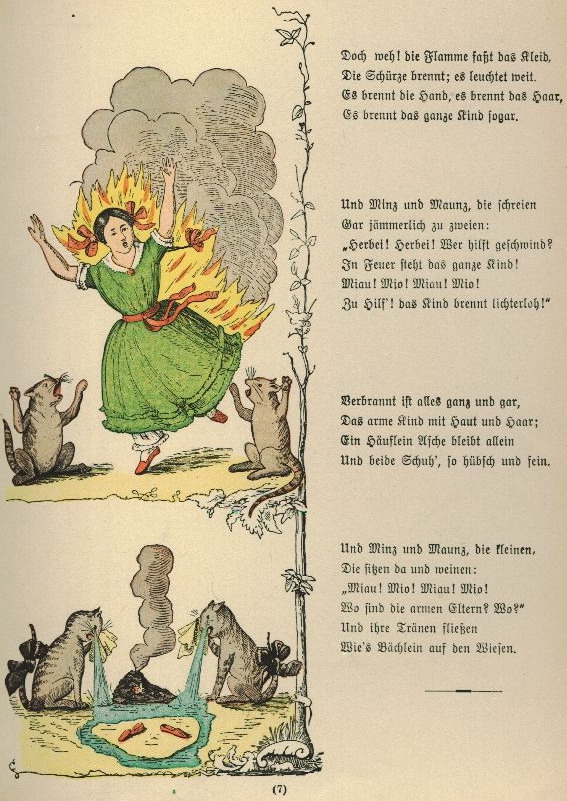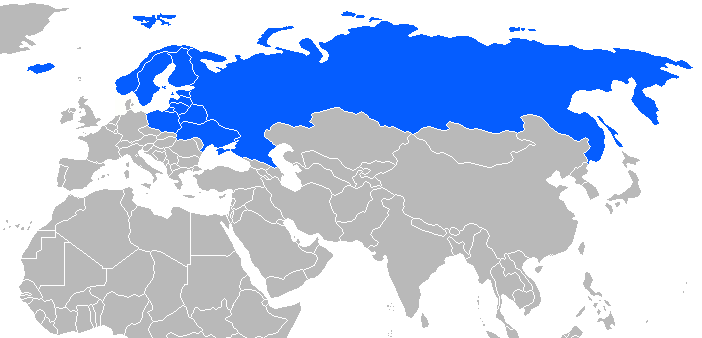|
Promoting A Devil
''Promoting a Devil'' (also translated as ''The Imp and the Crust'') is a short story by Russian author Leo Tolstoy first published in 1886. (Tolstoy used the same plot for a play titled '' The First Distiller'' written later in the same year). It is a cautionary tale story about a man who fell into a sinful life when he was given more than he needed. Synopsis The story opens with a peasant preparing to plow a field. Having gone without breakfast, he is careful to hide his dinner, a small crust of bread, under his coat. After plowing the field the peasant is hungry and ready for his dinner, but when he picks up his coat he sees that the bread is gone. It had been taken by a little devil, who was convinced that the peasant would become wrathful. Instead, the peasant decided that whoever took his bread must have needed it more than him, and he went on his way. The little devil is brought before the Chief Devil, who is not pleased that the peasant was not corrupted. He threaten ... [...More Info...] [...Related Items...] OR: [Wikipedia] [Google] [Baidu] |
Leo Tolstoy
Count Lev Nikolayevich TolstoyTolstoy pronounced his first name as , which corresponds to the romanization ''Lyov''. () (; russian: link=no, Лев Николаевич Толстой,In Tolstoy's day, his name was written as in pre-reformed Russian. ; ), usually referred to in English as Leo Tolstoy, was a Russian writer who is regarded as one of the greatest authors of all time. He received nominations for the Nobel Prize in Literature every year from 1902 to 1906 and for the Nobel Peace Prize in 1901, 1902, and 1909; the fact that he never won is a major controversy. Born to an aristocratic Russian family in 1828, Tolstoy's notable works include the novels ''War and Peace'' (1869) and ''Anna Karenina'' (1878), often cited as pinnacles of realist fiction. He first achieved literary acclaim in his twenties with his semi-autobiographical trilogy, ''Childhood'', '' Boyhood'', and ''Youth'' (1852–1856), and '' Sevastopol Sketches'' (1855), based upon his experiences in ... [...More Info...] [...Related Items...] OR: [Wikipedia] [Google] [Baidu] |
The First Distiller
''The First Distiller'', subtitled ''How the Imp Earned a Crust'' (russian: Первый винокур, или Как чертенок краюшку заслужил), is a play by Leo Tolstoy published in 1886, and translated into English by Aylmer and Louise Maude. According to academic Andrew Donskov, ''The First Distiller'' was an anti-alcohol morality play, based on Tolstoy's short story '' Promoting a Devil'', that drew upon numerous literary themes already present in Russian literature in the 1860s, such as A. F. Pogossky's 1861 story of the same title. It was first translated into French by the famous Polish translator Téodor de Wyzewa in November 1886. Text online Russian Первый винокур, или Как чертенок краюшку выкупал from rvb.ru English ''The First Distiller: A Comedy in Six Acts'' from RevoltLib.com from Marxists.org ''The First Distiller'' from TheAnarchistLibrary.org ''The First Distiller'' from Project Gutenber ... [...More Info...] [...Related Items...] OR: [Wikipedia] [Google] [Baidu] |
Cautionary Tale
A cautionary tale is a tale told in folklore to warn its listener of a danger. There are three essential parts to a cautionary tale, though they can be introduced in a large variety of ways. First, a taboo or prohibition is stated: some act, location, or thing is said to be dangerous. Then, the narrative itself is told: someone disregarded the warning and performed the forbidden act. Finally, the violator comes to an unpleasant fate, which is frequently related in expansive and grisly detail. Cautionary tales and conformity Cautionary tales are ubiquitous in popular culture; many urban legends are framed as cautionary tales: from the lover's lane haunted by a hook-handed murderer to the tale of a man who shot a cactus for fun only to die when the plant toppled onto him. Like horror fiction, generally the cautionary tale exhibits an ambivalent attitude towards social taboos. The narrator of a cautionary tale is momentarily excused from the ordinary demands of etiquette that di ... [...More Info...] [...Related Items...] OR: [Wikipedia] [Google] [Baidu] |
Vodka
Vodka ( pl, wódka , russian: водка , sv, vodka ) is a clear distilled alcoholic beverage. Different varieties originated in Poland, Russia, and Sweden. Vodka is composed mainly of water and ethanol but sometimes with traces of impurities and flavourings. Traditionally, it is made by distilling liquid from fermented cereal grains, and potatoes since introduced in Europe in the 1700's. Some modern brands use fruits, honey, or maple sap as the base. Since the 1890s, standard vodkas have been 40% alcohol by volume (ABV) (80 U.S. proof). The European Union has established a minimum alcohol content of 37.5% for vodka. Vodka in the United States must have a minimum alcohol content of 40%. Vodka is traditionally drunk "neat" (not mixed with water, ice, or other mixers), and it is often served ''freezer chilled'' in the vodka belt of Belarus, Estonia, Finland, Iceland, Latvia, Lithuania, Norway, Poland, Russia, Sweden, and Ukraine. It is also used in cocktails and mixed dri ... [...More Info...] [...Related Items...] OR: [Wikipedia] [Google] [Baidu] |
Bibliography Of Leo Tolstoy
This is a list of works by Russian writer Leo Tolstoy (1828–1910), including his novels, novellas, short stories, fables and parables, plays, and nonfiction. Prose Fiction Novels *''War and Peace'' (Война и мир 'Voyna i mir'' 1869) *''Anna Karenina'' (Анна Каренина 'Anna Karenina'' 1877) *''Resurrection'' (Воскресение 'Voskresenie'' 1899) Novellas *''The Autobiographical Trilogy'' (1852-1856) **''Childhood'' (Детство 'Detstvo'' 1852) **'' Boyhood'' (Отрочество 'Otrochestvo'' 1854) **''Youth'' (Юность 'Yunost''' 1856) *'' Sevastopol Sketches'' (''Севастопольские рассказы'' 'Sevastopolskie rasskazy'' 1855–1856) **"Sevastopol in December 1854" (1855) **"Sevastopol in May 1855" (1855) **"Sevastopol in August 1855" (1856) * '' A Morning of a Landed Proprietor'' (''Утро помещика'', 1856) * '' Two Hussars'' (''Два гусара'' 'Dva gusara'' 1856) * '' Family Happiness'' (Сем� ... [...More Info...] [...Related Items...] OR: [Wikipedia] [Google] [Baidu] |
Twenty-Three Tales
''Twenty-Three Tales'' is a popular compilation of short stories by Leo Tolstoy. According to its publisher, Oxford University Press, the collection is about contemporary classes in Russia during Tolstoy's time, written in a brief, morality play, morality-tale style. It was translated into English by Louise Maude and Aylmer Maude. Contents The stories are divided into seven parts: # Tales for Children ## God Sees the Truth, But Waits ## The Prisoner of the Caucasus (story), The Prisoner of the Caucasus ## The Bear Hunt # Popular Stories ## What Men Live By ## Quench the Spark ## Two Old Men (story), Two Old Men ## Where Love Is, God Is # A Fairy Tale ## Ivan the Fool (story), Ivan the Fool # Stories Written to Pictures ## Evil Allures, But Good Endures ## Wisdom of Children ## Ilyás (by Tolstoy), Ilyás # Folk-Tales Retold ## The Three Hermits ## Promoting a Devil ## How Much Land Does a Man Need? ## The Grain ## The Godson (by Tolstoy), The Godson ## Repentance (story), Repent ... [...More Info...] [...Related Items...] OR: [Wikipedia] [Google] [Baidu] |
Louise Maude
Aylmer Maude (28 March 1858 – 25 August 1938) and Louise Maude (1855–1939) were English translators of Leo Tolstoy's works, and Aylmer Maude also wrote his friend Tolstoy's biography, ''The Life of Tolstoy''. After living many years in Russia the Maudes spent the rest of their life in England translating Tolstoy's writing and promoting public interest in his work. Aylmer Maude was also involved in a number of early 20th century progressive and idealistic causes. Family & Russia Aylmer Maude was born in Ipswich, the son of a Church of England clergyman, Reverend F.H. Maude, and his wife Lucy, who came from a Quaker background. The family lived near the newly built Holy Trinity Church where Rev. Maude's preaching helped draw a large congregation. A few of the vicar's earlier sermons were published with stirring titles like ''Nineveh: A Warning to England!'', but later he moved from Evangelical Anglicanism towards the Anglo-Catholic Church Union. After boarding at Christ's Hos ... [...More Info...] [...Related Items...] OR: [Wikipedia] [Google] [Baidu] |
Aylmer Maude
Aylmer Maude (28 March 1858 – 25 August 1938) and Louise Maude (1855–1939) were English translators of Leo Tolstoy's works, and Aylmer Maude also wrote his friend Tolstoy's biography, ''The Life of Tolstoy''. After living many years in Russia the Maudes spent the rest of their life in England translating Tolstoy's writing and promoting public interest in his work. Aylmer Maude was also involved in a number of early 20th century progressive and idealistic causes. Family & Russia Aylmer Maude was born in Ipswich, the son of a Church of England clergyman, Reverend F.H. Maude, and his wife Lucy, who came from a Quaker background. The family lived near the newly built Holy Trinity Church where Rev. Maude's preaching helped draw a large congregation. A few of the vicar's earlier sermons were published with stirring titles like ''Nineveh: A Warning to England!'', but later he moved from Evangelical Anglicanism towards the Anglo-Catholic Church Union. After boarding at Christ's Ho ... [...More Info...] [...Related Items...] OR: [Wikipedia] [Google] [Baidu] |
Marxists
Marxism is a left-wing to far-left method of socioeconomic analysis that uses a materialist interpretation of historical development, better known as historical materialism, to understand class relations and social conflict and a dialectical perspective to view social transformation. It originates from the works of 19th-century German philosophers Karl Marx and Friedrich Engels. As Marxism has developed over time into various branches and schools of thought, no single, definitive Marxist theory exists. In addition to the schools of thought which emphasize or modify elements of classical Marxism, various Marxian concepts have been incorporated and adapted into a diverse array of social theories leading to widely varying conclusions. Alongside Marx's critique of political economy, the defining characteristics of Marxism have often been described using the terms dialectical materialism and historical materialism, though these terms were coined after Marx's death and their te ... [...More Info...] [...Related Items...] OR: [Wikipedia] [Google] [Baidu] |
1886 Short Stories
Events January–March * January 1 – Upper Burma is formally annexed to British Burma, following its conquest in the Third Anglo-Burmese War of November 1885. * January 5– 9 – Robert Louis Stevenson's novella ''Strange Case of Dr Jekyll and Mr Hyde'' is published in New York and London. * January 16 – A resolution is passed in the German Parliament to condemn the Prussian deportations, the politically motivated mass expulsion of ethnic Poles and Jews from Prussia, initiated by Otto von Bismarck. * January 18 – Modern field hockey is born with the formation of The Hockey Association in England. * January 29 – Karl Benz patents the first successful gasoline-driven automobile, the Benz Patent-Motorwagen (built in 1885). * February 6– 9 – Seattle riot of 1886: Anti-Chinese sentiments result in riots in Seattle, Washington. * February 8 – The West End Riots following a popular meeting in Trafalgar Square, London. * Februar ... [...More Info...] [...Related Items...] OR: [Wikipedia] [Google] [Baidu] |



.jpg)

